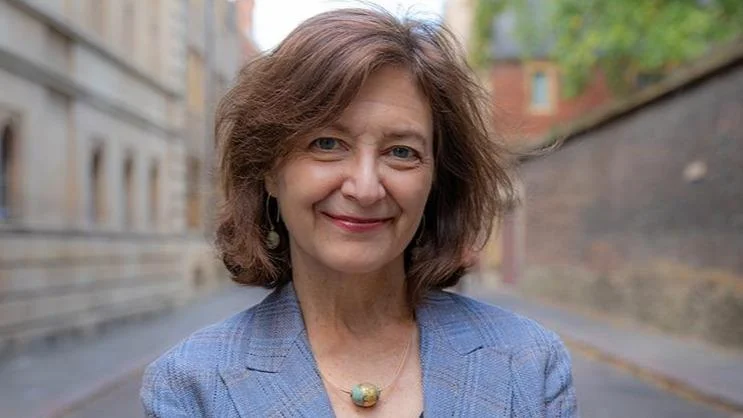More than 600 historical items, including letters, photographs, and papers collected over two decades from auction sites like eBay, are now available to researchers and the public through a new digital resource hosted by Cambridge University Library. The collection documents the history of Sandbach Tinne & Co., a British company that profited from slavery in the 18th and 19th centuries and later used indentured labor into the 20th century.
The research behind this collection is also featured in a new book released this week, "Searching for My Slave Roots: From Guyana’s Sugar Plantations to Cambridge," authored by Malik Al Nasir, a PhD student at the University of Cambridge’s Faculty of History and St Catharine’s College.
One letter in the collection highlights how enslaved Africans were discussed as property. “‘The Writer does not really know what to advise about the machinery - it is to be hoped the letter will soon cast up, and as he gives leave to take them from Fawcett it will begin in apt time. Something must be written to him about the purchase of more Negroes; of this the Writer will be glad to have Mr. S.'s opinion. The power of the Engine should no doubt correspond with the strength of Negroes.’”
Malik Al Nasir commented on this correspondence: “Parker is clearly referring to the Africans in the same terms as livestock when ordering an engine from the Preston firm Fawcett & Preston whose engine strength was measured in horsepower,” said Malik Al Nasir, who unearthed the original letter, now part of the historical papers and carte de visit photos that make up the Sandbach Tinne Collection.
“In this case Parker tells Sandbach that ‘The power of the Engine should no doubt correspond with the strength of Negroes.’”
Al Nasir began collecting these materials after moving from Liverpool to Cambridge in 2020 for his doctoral studies. Over five years, he examined records worldwide to understand how kinship networks enabled Sandbach Tinne & Co. to exploit enslaved people during Britain’s involvement in transatlantic slavery.
For Al Nasir, who is descended both from members of this dynasty and those they enslaved, researching these archives has been personal as well as academic. His father worked on what remained of Sandbach Tinne’s Blairmont Plantation in Guyana during the 1930s.
“My mum and I were stopped in our tracks late one night in 2003 as we watched a BBC documentary about Andrew Watson, the world’s first Black international football player,” Al Nasir said.
“I’d changed my name from Mark Watson when I became a Muslim but apart from the name, what really got my attention was our shared links with Demerara (now Guyana) and the uncanny photos of Andrew – he looked just like me but in Victorian dress!”
“My father died in 1981, and I only had few clues to work off to trace his lineage in Guyana. Only when I visited in 2008 did I realise the true extent of Scottish influence there and its legacy, from Scottish surnames and place names,” said Al Nasir.
“I started to notice same names appearing everywhere: Sandbach, Tinne, Parker, McInroy, Watson, Traill, Robertson, McBean and McLagan. Even Guyanese Prime Minister’s residence was originally built for Samuel Sandbach.”
Al Nasir explained that while his project began out of personal interest it quickly revealed broader significance by uncovering family connections shaping events across Britain’s empire.
“As it grew what is now Sandbach Tinne Collection began revealing an astonishing family who criss-crossed Scotland England Australia India Americas Caribbean beyond encapsulating complexity cunning callousness British Empire chief source income – slavery,” said Al Nasir.
“Each familial line presented new narrative trajectories harrowing subject matter flippancy which they discussed African people’s miserable plight accounted such people financial statements amongst their ‘livestock’ haunted me.”
Al Nasir found evidence suggesting illegal trafficking by Sandbach Tinne & Co., continuing after Britain banned slave trading (1807), emancipation (1833), and compensation legislation (1837). He stated: “This trafficking falls well after Britain’s 1807 ban on slave trade Emancipation Act 1833 even Slavery Compensation Act 1837 which Sandbach Tinne family were both among architects largest beneficiaries.”
“The family’s wealth before ban was considerable – valuation estates just two slave owners dynasty totalled £541325 over £50 million today’s money – but they continued enslave Africans at least next four decades.”
He added that after emancipation their business model shifted toward apprenticeships then indentured labor: “This afforded them longevity where others had long since wound up operations.”
Marriages helped consolidate business interests within elite circles. One example cited was Samuel Sandbach's marriage linking him with business partners Charles Stuart Parker George Robertson plus parents Prime Minister William Ewart Gladstone: “Business partnerships were often bound with marital unions which resulted extended kinship networks managing multi-national corporations global reach,” said Al Nasir. “Maintaining these connections required relentless exchange letters visiting cards which make up large part Sandbach Tinne Collection.”
Al Nasir collaborated with digital humanities specialists at Cambridge University Library so others could access these materials online: “I tracked down almost all photos letters other papers scattered across country thanks auction catalogues eBay listings,” explained Al Nasir.
“On luckier days came across several stamp collectors keen get rid letters low price because stamp nothing special them – one man’s trash truly another treasure! However others paid premium for.”
He emphasized public engagement throughout his research at Cambridge. In his first year he consulted on BBC documentary "Mark Walters: In The Footsteps Of Andrew Watson" correcting errors about footballer Andrew Watson using research including his own findings.
His work also contributed content for "Colonial Legacies Of Liverpool Sandbach Family" project at Walker Art Gallery—part National Museums Liverpool's ongoing efforts addressing legacies slavery empire colonialism across its venues.
"May this go some way to lifting silence their anguish ensure future generations never forget immense sacrifice so we could exist."

